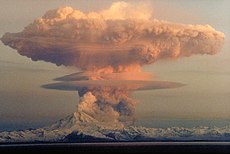 |
| Sunshine - We Deliver |
The goal of the policy - widely backed by pro-North sympathizers - was to send aid to North Korea on the pretext that the military-first regime would gradually reform and become democratic, while really understanding it would buy their Northern brothers enough time to develop a decisive nuclear capability which would ultimately force unification on their own terms. But the policy gradually became discredited as Pyongyang failed to reform in any way and instead continued issuing nuclear threats against Seoul before it was actually ready to attack - giving South Korean voters time to react at the ballot box.
Now the close advisor to the former presidents, 64 year-old Professor Kim, says that despite running through two five-year largely pro-North terms, the 'Sunshine Policy' was never really given a chance to succeed, because contrary to everyone else's belief, it didn’t last ten years after all, but in fact only 9 minutes.
"When Kim Dae-jung came to office it took us a long time to find things like paperclips and get our chairs adjusted properly. Then, six minutes after we launched the Sunshine Policy, George W. Bush came to power and of course his first act was to declare a war on sunshine." explained Professor Kim. "Then Bush was thrown out from office by the people in the Hope Revolution, but three minutes later Kim Dae-jung's ideological successor Roh Moo-hyun had to leave office because of the unfortunate way our democratic system works, and he was replaced by Korea's version of George W. Bush, Lee Myung-bak."
Kim says that once Lee Myung-bak came to power he raised the issue of human rights in North Korea, which the liberal administrations in Seoul had always been careful to ignore - despite the fact they fought for human rights in the South under the authoritarian government. The North then became angry and started attacking South Korea even more, destroying the hope that eventually Pyongyang would move from threatening to destroy Seoul in a sea of fire to promising to bury it in a sea of candy. But liberals in the South now believe that peace with the authoritarian government in the North is more important than the human rights of its citizens. "The authoritarian regime in South Korea was right-wing, but the authoritarian regime in North Korea is left-wing." explained Professor Kim.
Despite the claim that President Bush worked tirelessly every day on his War Against Sunshine, some people still believe that the two liberal administrations can't blame all their failings on the American leader. But Professor Kim explains that even without Bush other problems afflicted Korean politicians. "People forget now that our terms unluckily coincided with two World Cups - which were obviously quite distracting - then the President lost his pen for a couple of weeks and couldn't write anything, we lost the keys to the office once and of course there were all those Windows Updates to do as well."
These days Professor Kim is relatively sanguine about the brutal American attack on South Korea during his time helping its two besieged liberal leaders, but he hopes that his book "provides an alternate view of history from the one people are familiar with, which will in turn remind Korean voters of how close we came to actually really having a Sunshine Policy." But some bitterness does shine through. "We would have gotten away with it too, if it wasn't for those darn kids." he added.
Professor Kim's book "The Sunshine Policy: In Defense of Appeasement as a Path to Peace in Korea and Free Puppies for Everyone" is released next week.
Related Links
Reassessing the Sunshine Policy
Beyond good and evil of Sunshine Policy
NK denounces S. Korea's attempt to expel pro-NK lawmakers
Aid Sent to North Korea as Soldiers Too Hungry to Invade
Hankyoreh Claims North Korean Torpedo “Peace Offering”
North Korea Threatens "All Out War" Against South for 1,000th Time
South Korean Sitcom Hit Among N.K. Teens
Kim Dae-Jung
Roh Moo-hyun
Scooby-Doo
Disclaimer: Please note the links above are generated automatically by our software and may not always be directly related to the news article.